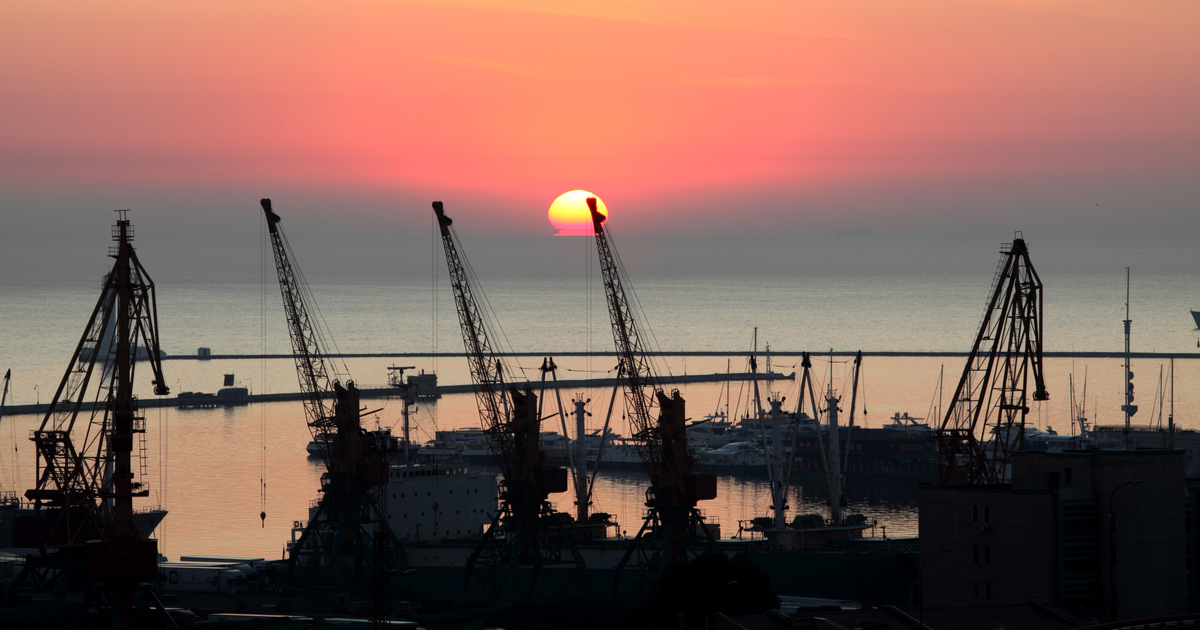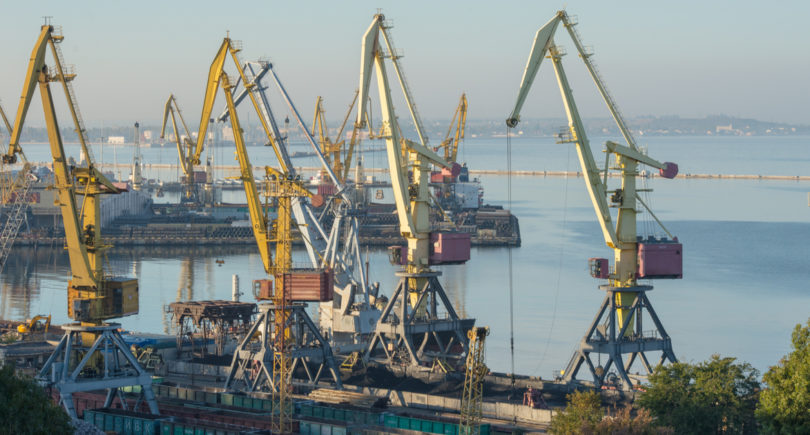
News Infrastructure sea ports 1174 05 June 2023
Russia's unilateral blockade of the Black Sea costs Ukraine and the West billions of dollars
Russia’s blockade of maritime trade with Ukraine, by any understanding of the definition of the word, is equivalent to piracy, or at least to the threat of it. By accepting the Russian Federation’s veiled threats to sink foreign-flagged merchant ships in international waters, the West has thereby allowed the Kremlin to successfully blackmail the world. American diplomat Kurt Walker considers, that developed countries should put an end to this type of piracy by using the entire arsenal of available mechanisms.
According to him, despite the normal operation of the grain agreement, which allows a limited flow of grain exports, it creates a legal facade that legitimizes the military actions of the Russian Federation to block all other Ukrainian sea exports, in particular, products of the mining and steel complex, which in 2021 amounted to 50 % of all Ukrainian exports and provided more than a third of foreign exchange revenues to the country’s budget.
«The grain deal gives Russia an unprecedented role in overseeing Black Sea shipping, despite the fact it has a legal claim to only 10% of the Black Sea coastline and is a party to the Montreux Convention, which was designed to assure freedom of commerce through the Bosphorus and Dardanelles Straits. The Convention assigns Turkey – not Russia – the role of ensuring that freedom of navigation is unimpaired,» Volker comments.
According to the US diplomat, the UK, the Netherlands, the G7 countries, the EU and all NATO allies should demand that Russia immediately abandon its threats to normal commercial shipping in the international waters of the Black Sea, which would allow Ukrainian ports to return to full operation.
Among the main steps to solve the shipping problem in the Black Sea, according to Kurt Walker, are:
- increasing demining efforts, providing appropriate technical means;
- implementation of the war risk insurance program for shipping companies conducting direct trade with Ukraine;
- the participation of NATO countries in operations that do not pose a threat to freedom of navigation in the international waters of the Black Sea, to support the principle of unimpeded transit.
«Finally, NATO nations should issue a warning that any attacks, by any entity, on commercial shipping in international waters in the Black Sea will be considered an act of piracy and will not be tolerated. Such attacks could be met with a direct military response under international law. NATO states have the means to do this even without their vessels entering the Black Sea,» the American diplomat believes.
Maintaining freedom of navigation in the Black Sea is consistent with the long-term policy of the US and other countries and mainly serves economic rather than military purposes, Walker added.
«It would be incredibly brazen and ill-considered of Russia to attack international shipping in the open waters of the Black Sea. It is time to call Russia’s bluff and open the port of Odesa for good,» sums up the former US special representative in Ukraine.
In 2022, the sea ports of Ukraine reduced freight turnover by 61.4% compared to 2021 – to 59 million tons. Export transshipment of cargo by port operators decreased by 59.5% y/y – to 47.8 million tons, and imported – by 74.2%, to 6.2 million tons. Grain – 28.8 million tons, as well as bulk goods – 4.8 million tons are among the leaders in terms of cargo nomenclature. Sea transport provided 54% of Ukrainian exports last year.
At the same time, iron and steel cargoes were processed only in the first two months of last year, although before the blockade of sea ports they were one of the main cargoes for porters – 70% of exports were shipped through the ports. Currently, mining and steel companies are forced to export products abroad only by rail, which significantly affected the volume of exports and production in 2022 and continues to put pressure on the indicators in the current year.
According to Oleksandr Kalenkov, president of Ukrmetalurgprom, increase in marine iron and steel exports as a result of the unblocking of the ports, according to preliminary estimates, will be possible to restore the loading of steel enterprises from the current indicators to at least 35-45%.
Analysts of the GMK Center have estimated that under the current price conditions, Ukraine is underpaid by $420 million every month due to the impossibility of sending iron ore, pig iron, semi-finished products and finished steel products by sea. On an annual basis, this is an additional over $5 billion.
As GMK Center reported earlier, in 2022, Ukraine has reduced iron ore export by 45.9% y/y – to 23.98 million tons. Export of pig iron fell by 59% y/y – to 1.32 million tons, semi-finished products – by 72% y/y, to 1.89 million tons, ferroalloys – by 47.7% y/y, to 349.6 thousand tons. The main volumes of exports were directed to the countries of the European Union.




